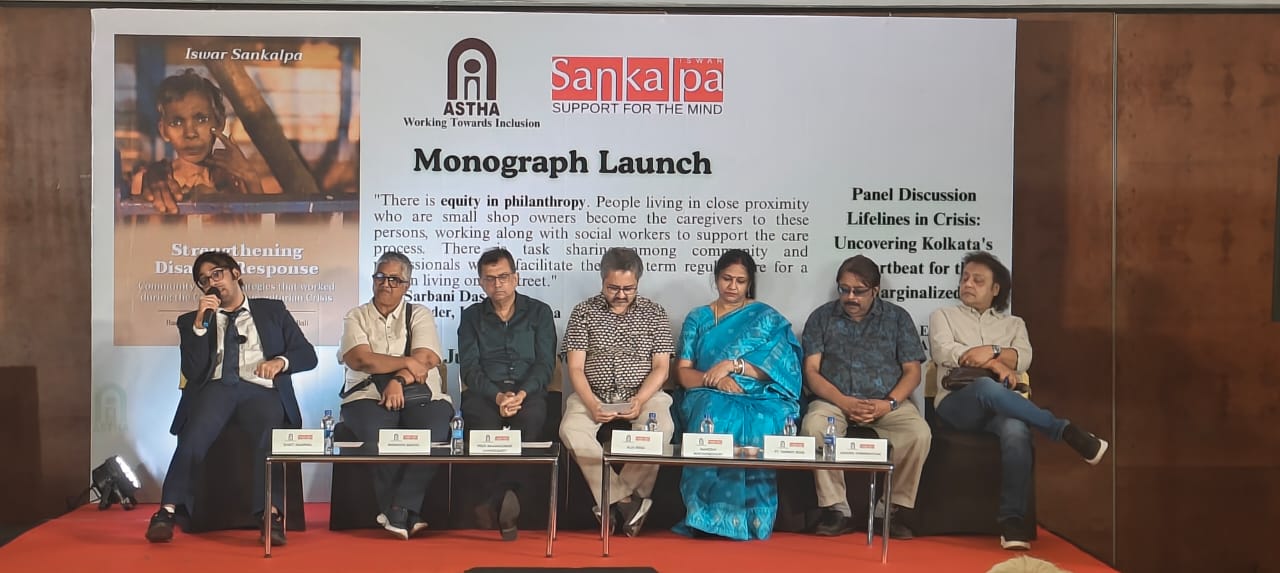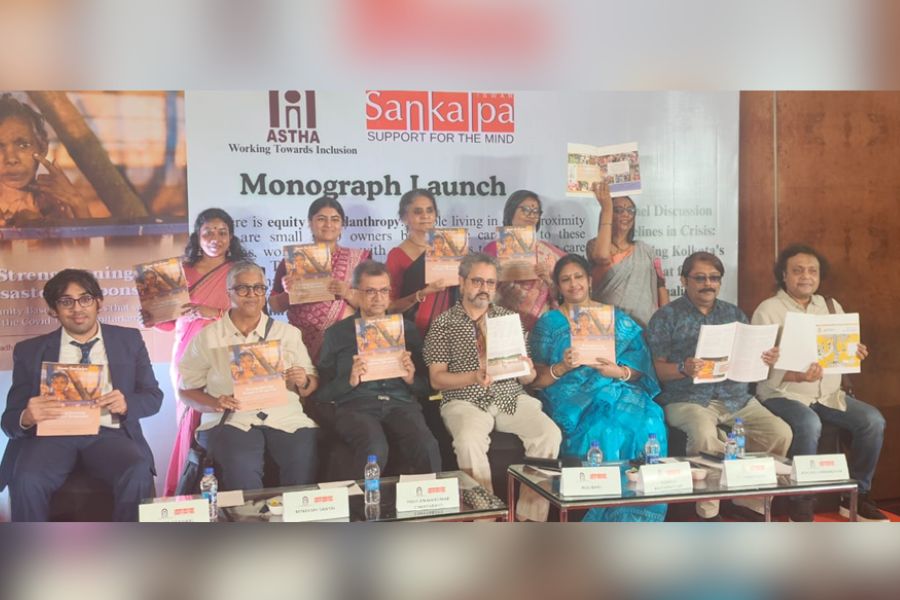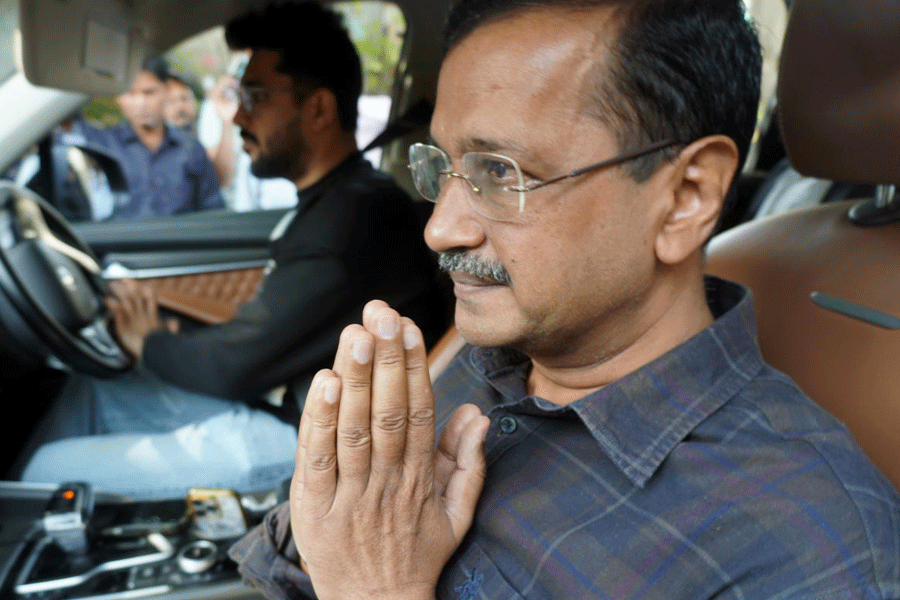Key experts from the mental health and development sectors came together to unveil the monograph, Strengthening Disaster Response: Community-Based Strategies That Worked During the COVID-19 Humanitarian Crisis.
Jointly organised by ASTHA and Iswar Sankalpa, the event showcased moving stories, data-backed discussions, and heartfelt accounts illustrating how informal caregivers, small shop owners, and everyday neighbours became Kolkata's silent lifelines during the COVID-19 lockdowns — especially for the homeless and individuals with psychosocial disabilities.
A panel discussion titled Lifelines in Crisis: Uncovering Kolkata's Heartbeat for the Marginalised highlighted task-sharing models in which ordinary citizens teamed up with social workers to provide consistent emotional and physical support to those hardest hit by the crisis.
The panel featured Prof. Anjan Kumar Chakrabarti (Department of Economics, University of Calcutta), Ashoke Viswanathan (national and international award-winning filmmaker), Manoshi Roychowdhury (Co-Chairperson, Techno India Group), Minakshi Sanyal (queer feminist activist), Pt. Tanmoy Bose (percussionist and maestro), and Sumit Agarwal (Mentor of Change, NITI Aayog).

Mental health experts, field workers, and local change-makers came together to share lessons learned on the ground, emphasising the significance of trust, proximity, and community collaboration.
Sarbani Das Roy, Co-Founder of Iswar Sankalpa, emphasised, "This monograph is not just a record — it is a reminder that equity in philanthropy lives in action. In the hardest moments, it was people on the margins who rose to care for one another."
Authored by Radhika Mullick Alkazi, with contributions from Suhasini Bali (ASTHA), the monograph — Strengthening Disaster Response — highlights the crucial role of community-based initiatives in addressing unmet needs during times of crisis. This model of community-led disaster response, born from collaboration and compassion, provides a replicable framework for enhancing national urban resilience strategies.
A subsequent session, attended by representatives from NGOs, the corporate social responsibility sector, mental health professionals, and students, sparked meaningful discussions around urban mental health, community care, and the need to build resilient social structures.
Alkazi emphasised the monograph's significance as a testament to the unsung contributions of individuals who provided vital mental health and humanitarian support during the pandemic. She highlighted their resilience and compassion as key components of community strength and underlined the value of documenting such efforts for future crisis preparedness and response.
About the Monograph
Strengthening Disaster Response offers a unique glimpse into community practices that emerged during COVID-19 and continue to hold relevance for future emergency frameworks. It positions everyday people as critical stakeholders in public health and caregiving systems — extending the scope beyond traditional institutions.
ASTHA: Working Towards Inclusion
Founded in 1993, ASTHA is a pioneering community-based organisation in Delhi, committed to empowering people with disabilities living in urban slums. With over three decades of dedicated service, ASTHA has become a trusted name in the field of disability rights and inclusion in India.
Iswar Sankalpa
Iswar Sankalpa is a non-profit organisation working at the intersection of mental health and homelessness, pioneering community-based care models for the urban poor.
This is a PR article which has been published as received without any editorial enhancement, or modification.. The Telegraph Online does not endorse or guarantee the accuracy, reliability, or completeness of any information presented in the article. The organization is not responsible for any errors or omissions in the content or for any losses, damages, or injuries arising from the use of the information provided in the article.











